If you’ve come across sites offering real cash prizes for games like slots and blackjack – without officially calling themselves online casinos – you’re probably thinking: How is this not gambling? Fair question – particularly when you consider that online gambling faces significantly stricter regulations, despite seeming so similar to sweeps sites.


By Jerard V.
Welcome bonus
GC 20,000 + SC 20
By Jerard V.
Welcome bonus
100,000 GC + 3 SC
By Nemanja M.
Welcome bonus
550K GC + 55 SC
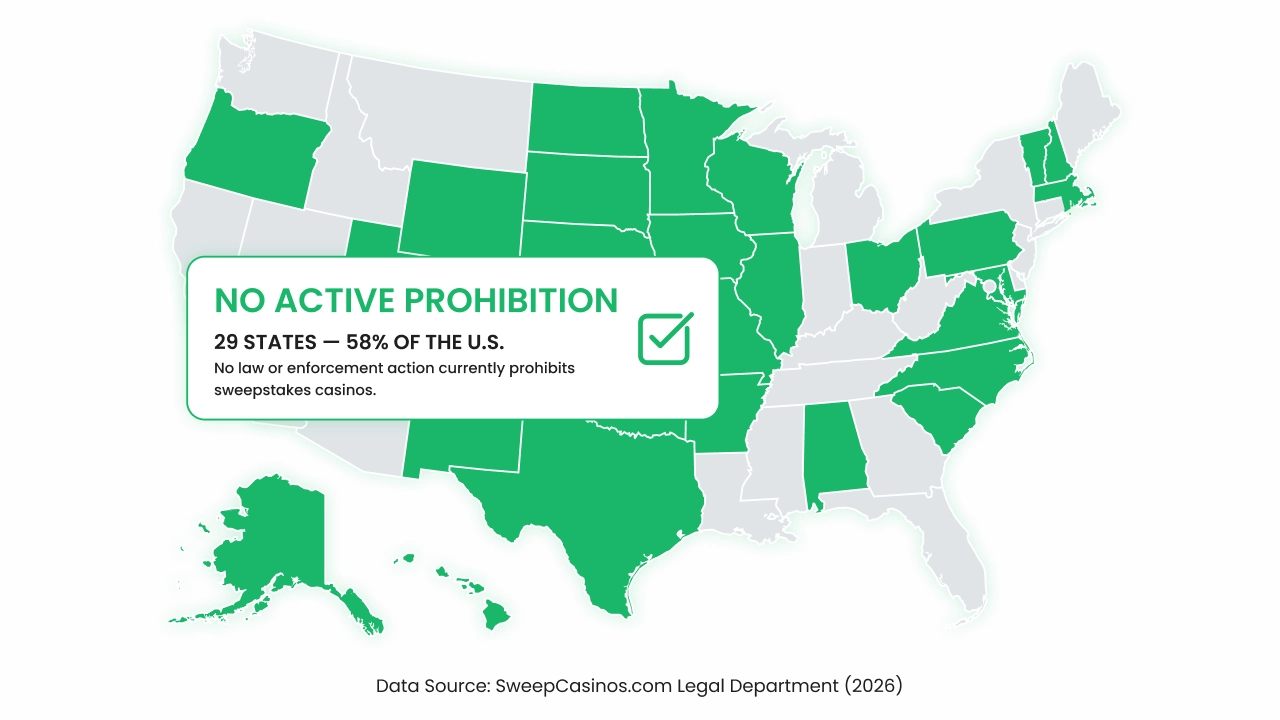

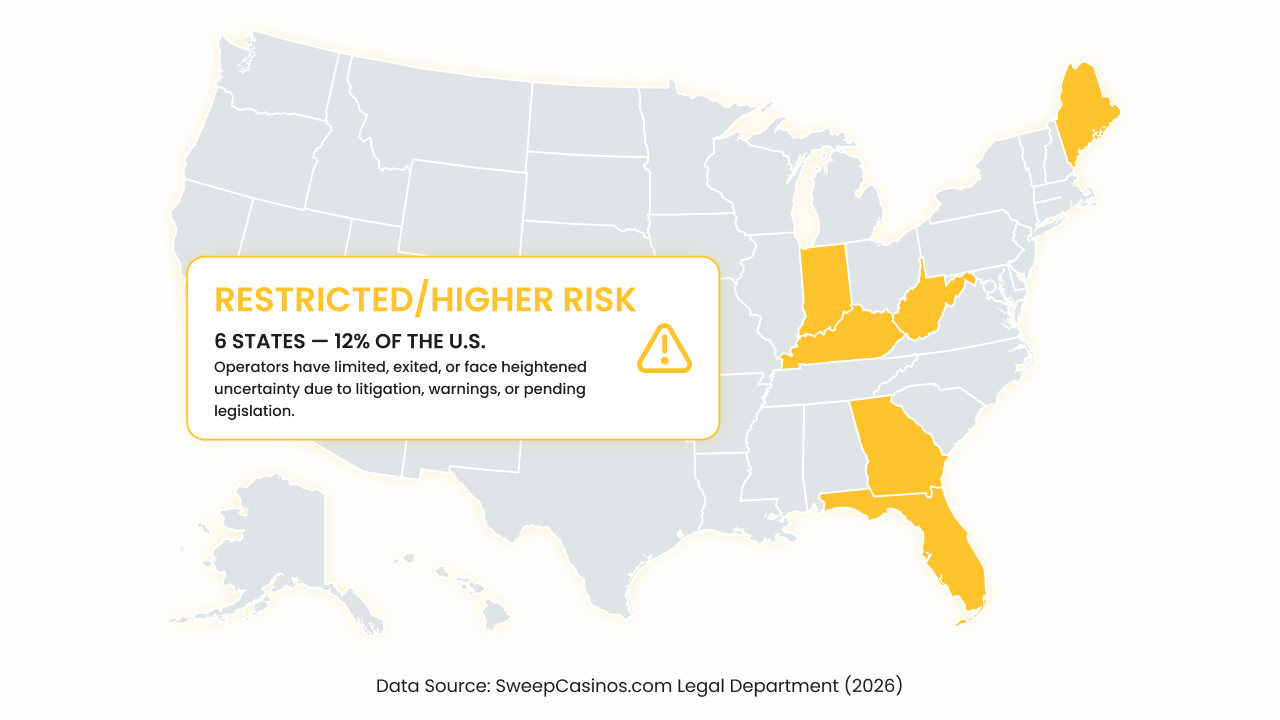

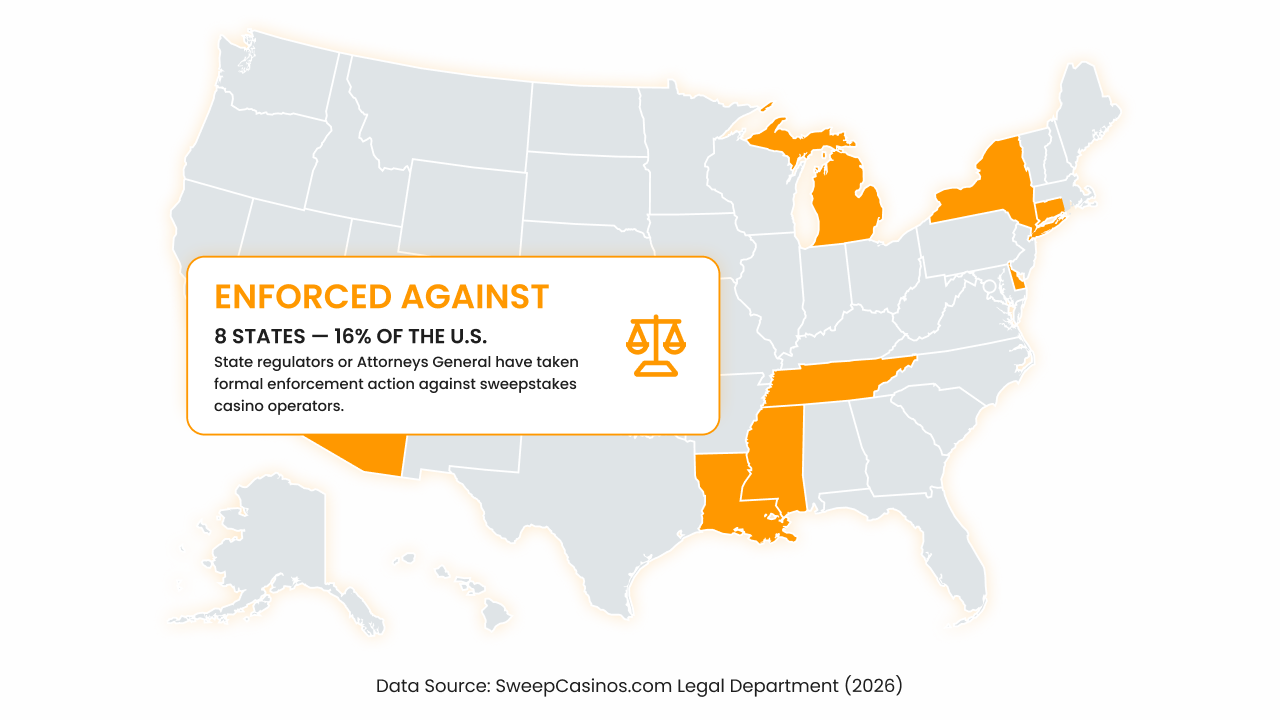

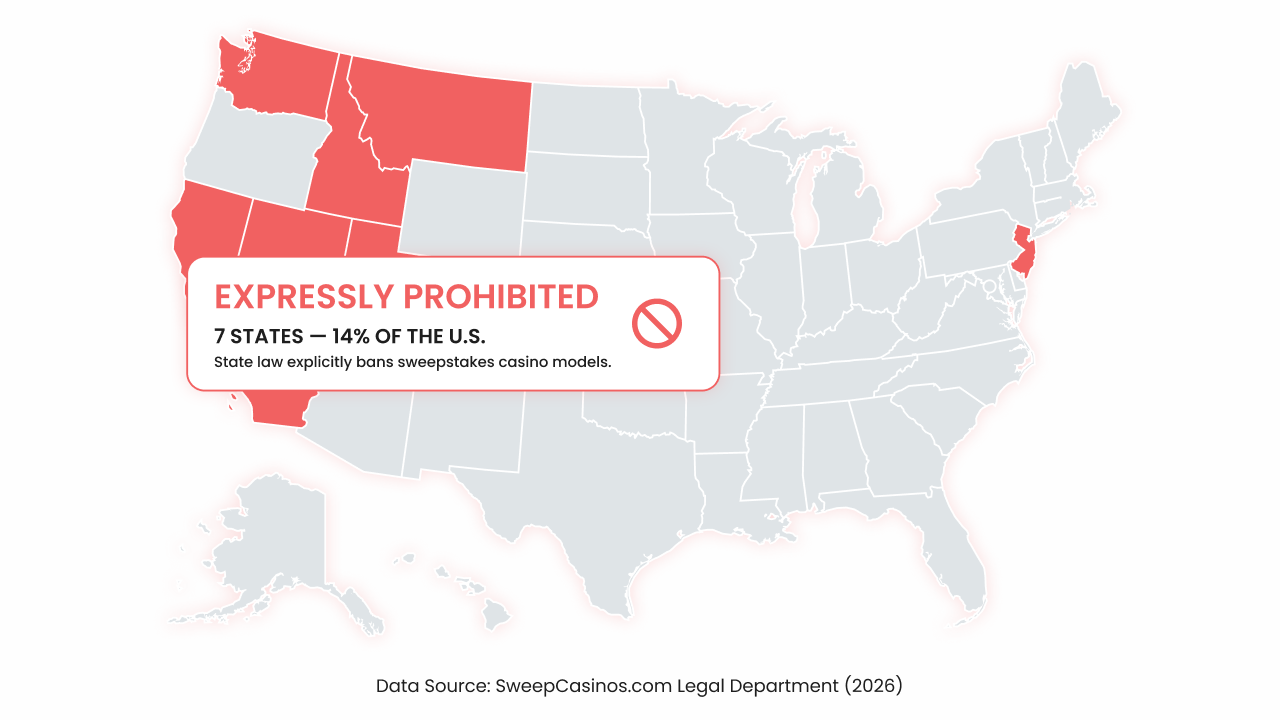

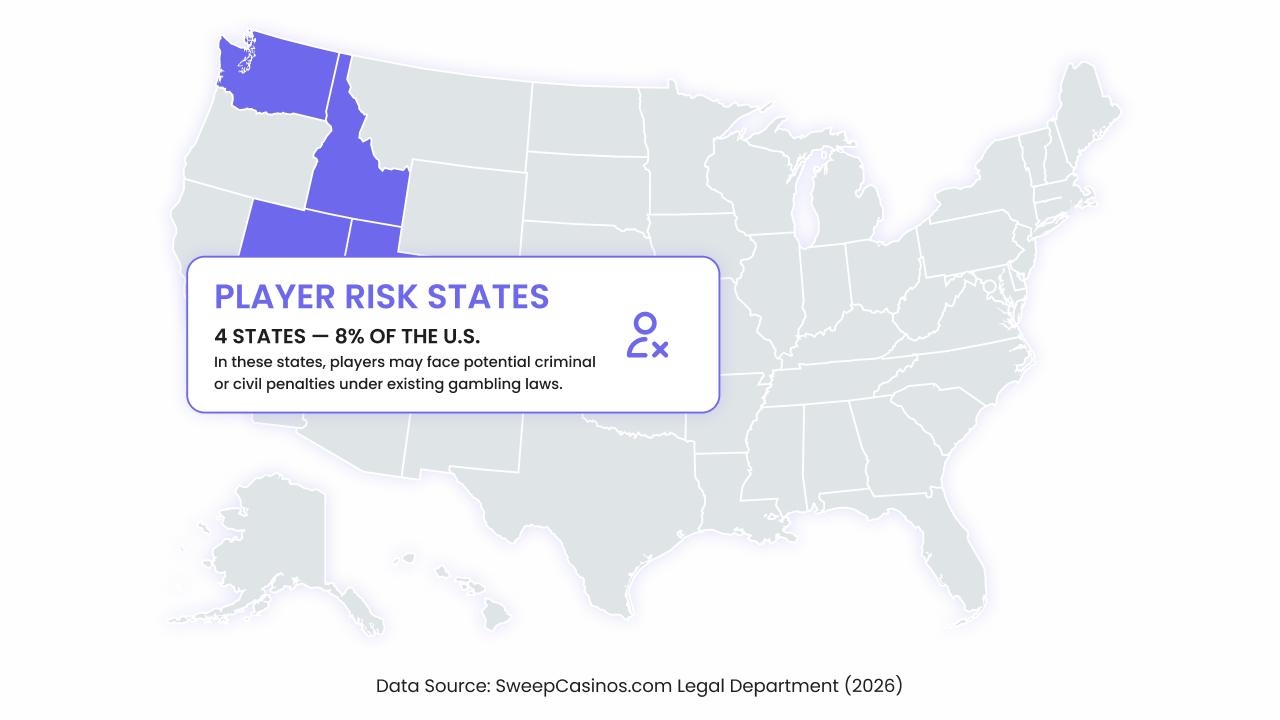

Keep reading to learn how sweepstakes casinos are treated in each U.S. state. We’ll show you which states kept the green lights on, where lawmakers have clearly said this type of platform is illegal, and where regulators have shut them down using broader gambling laws.
Before you check out the table down below, we’ll break down what each color code means so you can get the most out of the info that follows.
| State | Status | Ban Basis | Source / Statue | Player Penalty? | Developments / Notes |
| Alabama | 🟢 No Active Prohibition | – | – | ❌ | Operating in gray market. |
| Alaska | 🟢 No Active Prohibition | – | – | ❌ | Operating in gray market. |
| Arizona | 🟠 Banned | Agency Guidance | AZ Dept. of Sweepstakes Guidance | ❌ | Regulators issued guidance (late 2025) declaring sweepstakes models as unlicensed gambling. |
| Arkansas | 🟢 No Active Prohibition | – | – | ❌ | 2025 ban attempts failed in legislature (HB 1861 / SB 524). |
| California | 🔴 Banned | New Specific Law | AB 831 (2025) | ❌ | Signed Oct 2025. Specifically defines sweepstakes with casino themes as illegal gambling. Effective Jan 1, 2026. |
| Colorado | 🟢 No Active Prohibition | – | – | ❌ | Operating in gray market. |
| Connecticut | 🟠 Banned | Settlement / C&D | DCP Press Release (May 2025) | ❌ | Dept. of Consumer Protection fined High 5 Games $1.5M; declared model illegal. |
| Delaware | 🟠 Banned | C&D Order | DGE Order (Apr 2025) | ❌ | Div. of Gaming Enforcement issued C&D to VGW (Chumba); declared them “illegal online slots.” |
| Florida | 🟡 Restricted | Pending Legislation | Pending: HB 591 | ❌ | High Risk. Class actions active. HB 591 (2026 session) aims to make operation a felony. |
| Georgia |
🟡 Restricted | Litigation | Kennedy v. VGW | ❌ | Class action lawsuits attempting to classify VGW as illegal gambling under 1800s statutes. |
| Hawaii |
🟢 No Active Prohibition | – | – | ❌ | Operating in gray market. |
| Idaho |
🔴 Banned | Long-standing Law | Idaho Code § 18-3802 | Misdemeanor | Strict. Statute explicitly bans “sweepstakes” that require consideration. |
| Illinois | 🟢 No Active Prohibition | – | – | ❌ | At Risk. “Loss Recovery” lawsuits filed by residents are increasing. |
| Indiana | 🟡 Restricted | Pending Legislation | Pending: HB 1052 (2026) | ❌ | Bill (HB 1052) introduced Dec 2025 to criminalize sweepstakes operators. |
| Iowa | 🟢 No Active Prohibition | – | – | ❌ | Operating in gray market. |
| Kansas | 🟢 No Active Prohibition | – | – | ❌ | Operating in gray market. |
| Kentucky | 🟡 Restricted | Litigation | KRS 372.020 | ❌ | “Loss Recovery Act” allows players to sue for losses; VGW restricts some access. |
| Louisiana | 🟠 Banned | C&D Notices | LGCB Notice (June 2025) | ❌ | Gaming Control Board issued 40+ C&D letters in 2025; VGW and others exited. |
| Maine | 🟡 Restricted | Pending Legislation | Pending: LD 2007 | ❌ | Gambling Control Unit issued warnings; ban Bill LD 2007 under discussion. |
| Maryland | 🟢 No Active Prohibition | – | – | ❌ | Ban failed in legislature (2025); operating in gray market (HB 1140 / SB 0860). |
| Massachusetts | 🟢 No Active Prohibition | – | MGC Public Meeting Archives (Dec 2025) / Bill H.4431 | ❌ | While currently allowed, Bill H.4431 (filed Aug 2025) proposes a strict ban, and the MGC held public meetings in Dec 2025 to discuss suppressing “illegal markets.” |
| Michigan | 🟠 Banned | C&D Order | MGCB Press Release (Nov 2025) | ❌ | Strict Enforcement. MGCB enforced Lawful Internet Gaming Act against VGW, Stake.us. |
| Minnesota | 🟢 No Active Prohibition | – | – | ❌ | Operating in gray market. |
| Mississippi | 🟠 Banned | Agency Action | MGC Public Notice (June 2025) | ❌ | MGC issued C&D orders to 10 operators (including VGW) on June 17, 2025, declaring “sweepstakes” models illegal under Miss. Code § 97-33-1. Major operators fully exited by Sept 2025. |
| Missouri | 🟢 No Active Prohibition | – | – | ❌ | Operating in gray market. |
| Montana | 🔴 Banned | New Specific Law | SB 555 (2025) | ❌ | Explicit Ban. Signed May 2025. Prohibits sale of virtual currencies for gambling. |
| Nebraska | 🟢 No Active Prohibition | – | – | ❌ | Operating in gray market. |
| Nevada | 🔴 Banned | Regulatory Policy | NV Reg 5.011 | Misdemeanor | Strict. Gaming Control Board strictly prohibits unlicensed interactive gaming. |
| New Hampshire | 🟢 No Active Prohibition | – | – | ❌ | Operating in gray market. |
| New Jersey | 🔴 Banned | New Specific Law | Assembly Bill 5447 | ❌ | Signed Aug 2025. Closes “sweepstakes loophole” for virtual currencies. |
| New Mexico | 🟢 No Active Prohibition | – | – | ❌ | Operating in gray market. |
| New York | 🟠 Banned | C&D Order | AG Press Release (June 2025) | ❌ | AG Letitia James issued C&D to 26 operators; declared model “illegal gambling”. |
| North Carolina | 🟢 No Active Prohibition | – | – | ❌ | Operating in gray market. |
| North Dakota | 🟢 No Active Prohibition | – | – | ❌ | Operating in gray market. |
| Ohio | 🟢 No Active Prohibition | – | – | ❌ | Operating in gray market. |
| Oklahoma | 🟢 No Active Prohibition | – | – | ❌ | Operating in gray market. |
| Oregon | 🟢 No Active Prohibition | – | – | ❌ | Operating in gray market. |
| Pennsylvania |
🟢 No Active Prohibition | – | – | ❌ | Notable: Regulated iGaming exists, but sweeps remain legal (for now). |
| Rhode Island | 🟢 No Active Prohibition | – | – | ❌ | Operating in gray market. |
| South Carolina | 🟢 No Active Prohibition | – | – | ❌ | Operating in gray market. |
| South Dakota | 🟢 No Active Prohibition | – | – | ❌ | Operating in gray market. |
| Tennessee |
🟠 Banned | C&D Letters | TN AG Press Release (Dec 2025) | ❌ | AG sent letters Dec 2025; major operators withdrawing. |
| Texas | 🟢 No Active Prohibition | – | – | ❌ | Key Market. No major enforcement despite strict gambling laws. |
| Utah | 🔴 Banned | Constitution | Utah Code § 76-10-1102 | Misdemeanor | Strict. State constitution prohibits all forms of gambling. |
| Vermont | 🟢 No Active Prohibition | – | – | ❌ | Operating in gray market. |
| Virginia | 🟢 No Active Prohibition |
– | – | ❌ | Operating in gray market. |
| Washington |
🔴 Banned | Long-standing Law | RCW 9.46.0237 | Class C Felony | Severest Penalty. “Knowingly transmitting gambling info” is a felony. |
| West Virginia | 🟡 Restricted | Regulatory Pressure | Global Poker Terms / Industry Notice | ❌ | Major operators (VGW) restricted “Sweeps Coin” play in Nov 2025. |
| Wisconsin | 🟢 No Active Prohibition | – | – | ❌ | Operating in gray market. |
| Wyoming | 🟢 No Active Prohibition | – | – | ❌ | Operating in gray market. |
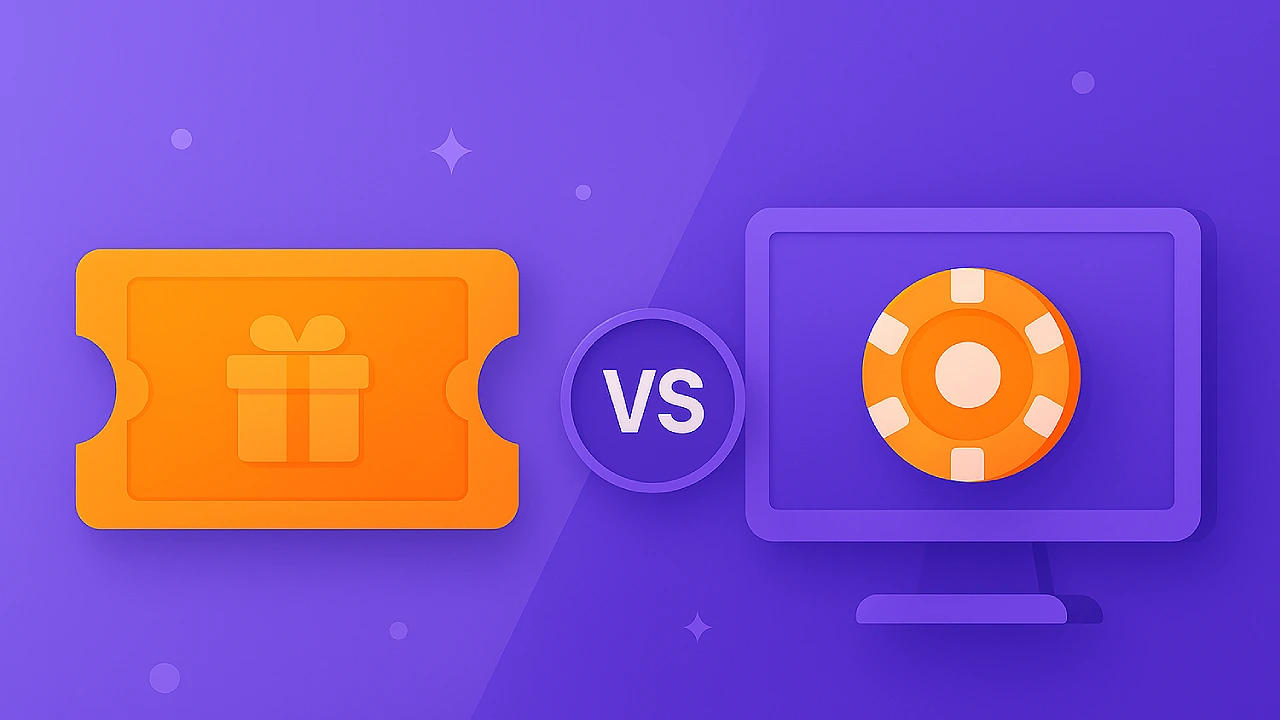

Curious about why some states treat sweepstakes casinos differently from online gambling? You’ll need to start with the basics. The best place to do that is the definition of gambling itself.
As stated in U.S. law, specifically 18 U.S.C. § 1304 and the Supreme Court’s decision in FCC v. American Broadcasting Co., an activity is considered illegal gambling only if all three of the following elements are present:
There’s one major difference here if we compare it to sweepstakes sites: with the sweepstakes model, you don’t have to pay to play. That one little tweak is exactly what keeps sweepstakes operators from falling under the legal framework of gambling.
As of right now (February 2026), only 7 US states have made the big decision to fully legalize online casino gambling. That means you can only legally play slots and table games with the chance of winning money if you should be a proud resident in one of those 7 states.
🔗 World Population Review – Online Gambling Legal States 2025
We’ve compiled a table showing all the differences between the sweepstakes casino and online gambling models.
| Feature | Online Gambling | Online Sweepstakes |
| Legal Framework | Governed by state-specific gaming commissions (e.g., NJ DGE) + federal prohibitions (Example: the Wire Act; 18 U.S. Code § 1084). | Governed by “No Purchase Necessary” laws, incl. the Deceptive Mail Prevention Act (39 U.S.C. § 3001) and FTC consumer protection statutes. |
| Currency | Single Currency. You deposit USD, wager it, withdraw your winnings. | Dual-Currency Model. “Gold Coins” (Entertainment only) vs. “Sweeps Coins” (Redeemable promotional entries). |
| Purchase Requirement | Mandatory. You must deposit money (“consideration”) to play and win. This meets the federal definition of gambling. | Prohibited. Operators must provide a free “Alternative Method of Entry” (AMOE) via mail-in request. |
| Prize Redemption | Direct Cashout. You can withdraw all balance funds as cash. | Winnings Only. You can only redeem played through / won “Sweeps Coins”. Purchased coins are not eligible. |
| User Eligibility | Strict 21+ & Geofenced. You must be physically located in one of the ~7 legal states (NJ, PA, MI, etc.). | Generally 18+ & National. Open to most US residents in around 38 states. |
| Risk Classification | “Gambling”. | “Sales Promotion”. Legally separate from gambling because the element of “consideration” is removed (depending on state). |
So, legally speaking, online sweepstakes sites aren’t the same as online gambling because:
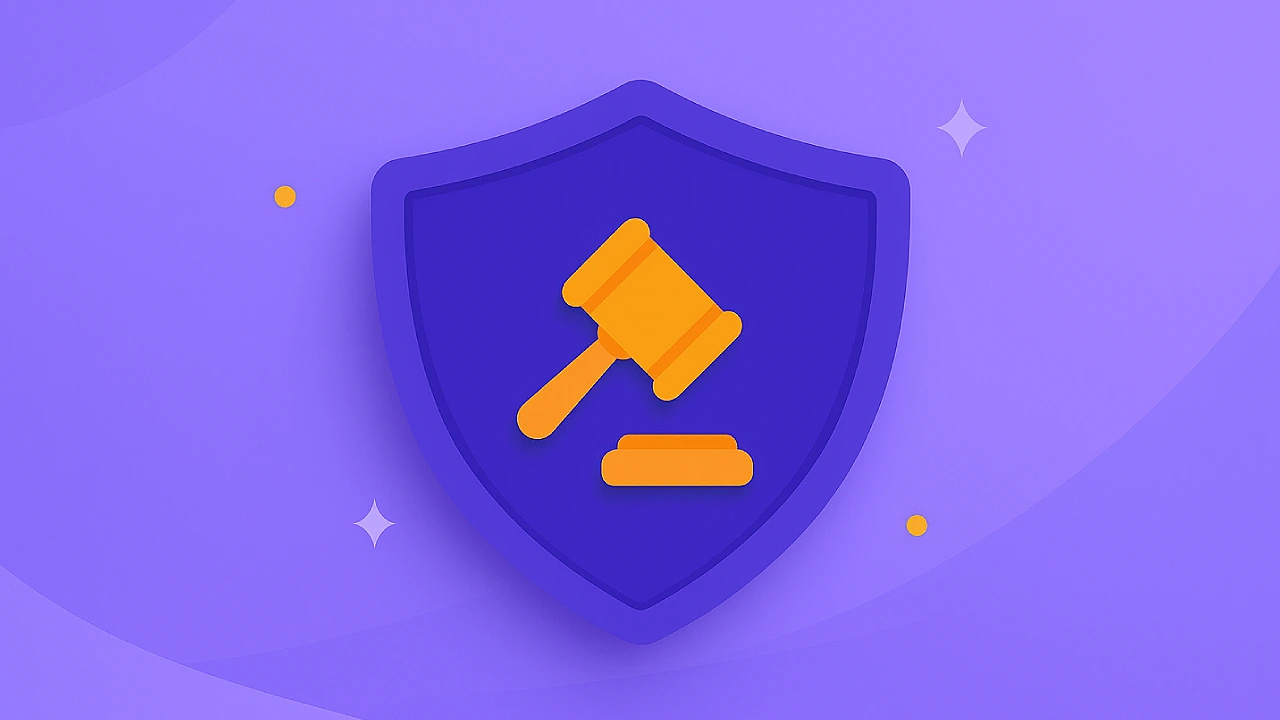

Sweepstakes casinos rely on a two-currency structure that separates paid gameplay from prize-eligible entries. One currency can be purchased. The other cannot.
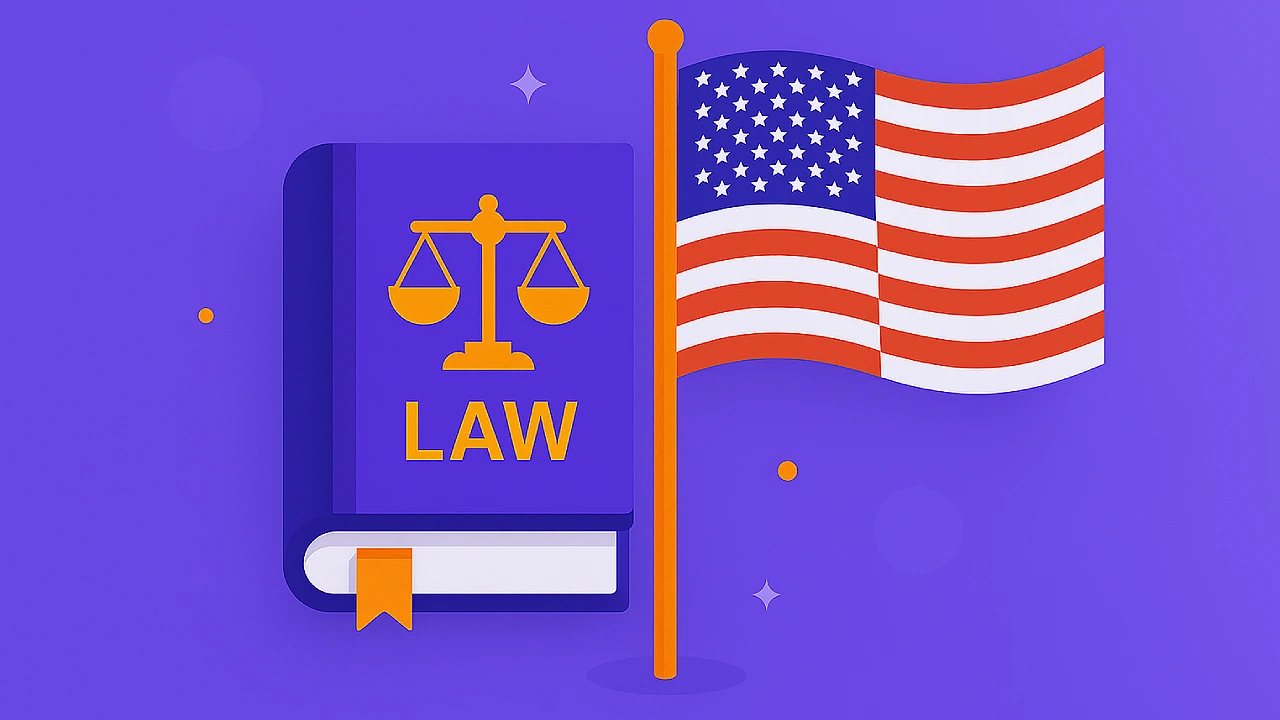

The laws about gambling in the U.S. were pretty much set in stone before online sweepstakes platforms even existed. That’s also why they don’t fit cleanly into the usual gambling categories. But, as we mentioned, some states have updated or created new gambling laws to deal with all these newly emerged platforms.
However, sweepstakes casinos have never been completely unregulated. At the federal level, they have always had to follow nationwide rules, regardless of where they operate, and they still do in the states where they are “allowed”. These requirements allow the model to function while setting basic standards around fairness, transparency, and player access.
Below you will find the main federal rules that dictate how sweepstakes platforms have to operate (of special relevance for those states that have not banned them yet).
These laws make it illegal to run or promote a lottery from one state to another, including by mail or broadcast.
When we say “lottery,” we’re referring to any game that includes:
👉 Key Takeaway
Sweepstakes operators stay within the law by getting rid of the “pay-to-play” part. That’s why free entry options like mail-ins or daily bonuses are so important.
🏛️ Statues:
The Deceptive Mail Prevention and Enforcement Act has some very specific rules about how sweepstakes have to be marketed through the mail. For example, it’s illegal to make false claims like “You’re a winner!” if you’re not, and it’s also illegal to suggest that buying something will improve your odds.
👉 Key Takeaway
If sweepstakes are promoted by mail, they 100% must:
🏛️ Statue:
This law lets the FTC put a stop to any unfair or misleading business practices. This includes things like wrongly advertised sweepstakes bonuses or misleading information about the number of games available.
👉 Key Takeaway
All legal sweepstakes operators must operate truthfully and transparently. That includes:
Fake claims or shady promotions? Well, in theory, that can get shut down pretty fast.
🏛️ Statue:
This one is important when sweepstakes operators try to push you over the phone. The law makes sure there’s no glossing over the fine print, especially when prizes are involved.
👉 Key Takeaway
If you run or promote sweepstakes by phone, you must:
🏛️ Statue:
A law that applies to email marketing of sweepstakes.
👉 Key Takeaway
Sweepstakes emails must:
🏛️ Statues:
These are rulings from courts and guidance from regulators like the FTC, USPS, and state attorneys general.
👉 Key Takeaway
They shaped the standard definition of illegal gambling: Prize + Chance + Consideration.
Sweepstakes operators rely on this interpretation to operate legally, especially by dropping the “consideration” (payment) piece.
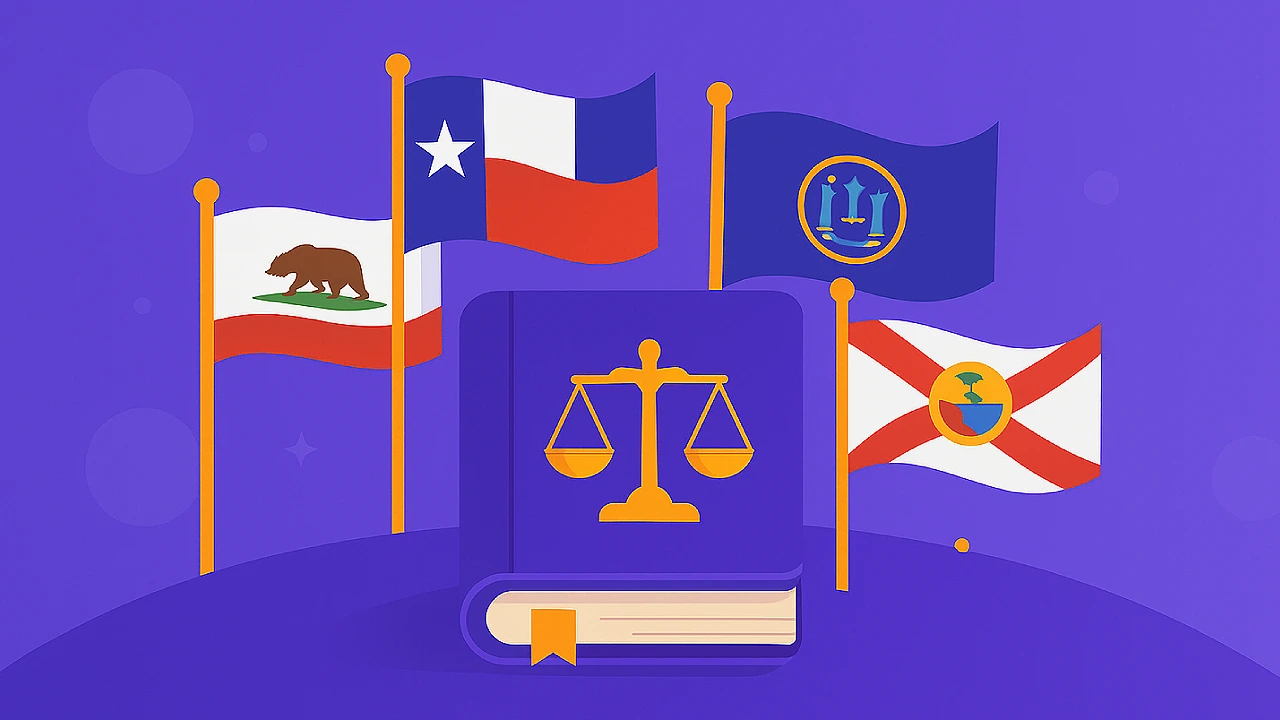

By now, we know that there is no federal rule that determines the legality of sweepstakes casinos in the U.S. We also know that gambling laws are mostly handled at the state level, resulting in each state having its own laws about what constitutes gambling. This is also why sweepstakes casinos can be deemed legal or illegal depending on your physical location within the states.
The thing that confuses a lot of people is that states can make stricter laws than the federal government and ban sweepstakes casinos completely and across the state.
The only limit is that they can’t act in a way that violates federal law or approve something that federal rules already forbid. As such, some basics still apply absolutely everywhere, such as offering a free way to participate.
With that in mind, we’ll look at some real-world examples below to show how some of these state-specific laws can look.
We’re not going to do a full legal analysis, but we’ll give you a pretty good idea of the authority states actually have.
🧾 Key Ruling: People ex rel. Green v. Grewal, 61 Cal.4th 544 (2015)
⚖️ The California Supreme Court ruled that sweepstakes software acting like a slot machine is illegal. However, standard promotional sweepstakes remain legal if not linked to slot-like game systems.
🧾 Statute: Florida Statutes §849.094 (Game Promotions)
⚖️ Sweepstakes are allowed if they are “incidental to the sale of a bona fide product” and properly registered. The state cracked down on cafés simulating slot games via Chapter 2013-2, treating those systems as illegal gambling devices.
🧾 Statute: General Business Law §369-e
⚖️ Sweepstakes with prizes over $5,000 must be registered and bonded with the Secretary of State. No outright ban on legal sites if they follow contest and consumer laws.
🧾 General Consumer Protection Law, 73 P.S. § 201-1
⚖️ Sweepstakes are legal when they follow traditional no-purchase-necessary rules. No statute or regulatory body has issued a ban on online sweepstakes casino models.
🧾 Statute: C.R.S. § 18-10-102 (definitions of gambling)
⚖️ Sweepstakes that do not require payment and offer free entry avoid being classified as gambling. Online sweepstakes operators are tolerated under general promotional contest rules.
🧾 Statute: O.C.G.A. § 10-1-393(b)(16)
⚖️ Allows promotional contests with no payment required. Does not permit prize-linked electronic devices, but online sweepstakes with clear AMOE (Alternate Means of Entry) are not specifically banned.
⚖️ Gambling is defined strictly. Promotional sweepstakes are legal when no consideration is required. No law bans online sweepstakes casinos that follow standard promotional structure.
Different U.S. states have different laws regarding sweepstakes casinos. Some states allow them, while others prohibit them entirely. As of 2026, 29 states (58%) have no active prohibition, meaning regulators haven’t moved to block these platforms. Six states (12%) are considered high-risk, eight states (16%) have taken enforcement action, and seven states (14%) have banned sweepstakes casinos. Since gambling rules are set by each state, you can only access a sweepstakes casino if you are in a state that allows it.
Yes, even in states where sweepstakes casinos aren’t technically banned, they’re still subject to numerous legal regulations. For example, federal regulations require them to clearly disclose information, honestly advertise, and include a “no purchase necessary” option. Additionally, states can have their own consumer protection or gambling laws, which is why some places allow sweepstakes casinos while others restrict or shut them down.
As of February 2026, no U.S. state licenses or officially approves sweepstakes casinos. They only operate in states where the regulators haven’t banned them or taken enforcement action. In those states, operators follow standard sweepstakes and consumer protection rules. This includes offering a real free option, clearly explaining how prizes work, and not making it seem like spending money will improve a player’s odds. Entertainment-only currency and sweepstakes entries that are eligible for prizes must be kept separate. The rules for both must be clear and easy to find. However, if these lines are crossed, regulators might treat the platform as illegal gambling instead of a lawful sweepstakes.
No. Sweepstakes casinos are not regulated or licensed like online casinos. As of January 2026, online casino gambling is only legal in seven U.S. states: Connecticut, Delaware, Michigan, New Jersey, Pennsylvania, West Virginia, and Rhode Island. In those states, operators must have a license and be monitored by state gaming commissions. Nevada is a little different because it allows online poker but not online casino games.
Sweepstakes casinos are not part of this system. They don’t have a license in any state in the U.S. They only operate in states where the regulators haven’t banned them or taken action against them. That’s why they’re available in more states than regulated online casinos. The rules about this are spelled out in general sweepstakes and consumer-protection laws, and they differ from state to state.